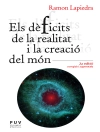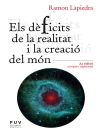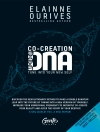In recent years, scientists have applied the principles of complex systems science to increasingly diverse fields. The results have been nothing short of remarkable: their novel approaches have provided answers to long-standing questions in biology, ecology, physics, engineering, computer science, economics, psychology and sociology.
The Third International Conference on Complex Systems attracted over 400 researchers from around the world. The conference aimed to encourage cross-fertilization between the many disciplines represented and to deepen our understanding of the properties common to all complex systems.
สารบัญ
Complex Behavior of Simple Systems.- Thresholds, Bifurcations and Mental Control: An Application of Nonlinear Dynamics to Psychotherapy.- Study of Pattern Formation by Peafowl using LEM Multi-Agent Simulator.- The Contribution Of Complexity Theory To The Study Of Socio-Technical Cooperative Systems.- Complexity Theory of Art: Recent Investigations.- Complexity, Emergence and Pathophysiology: Using Non-Adaptive Inflammatory Response.- Self-Organization of Population Structure in Biological Systems.- Spatial Periodicity in Mycelial Fungi Growth with Respect to Their Life Strategies.- In Search of Scaling in Brain.- Co-operation in the Brain in Higher Cognitive Functioning.- A Complex System for the Visualization of Music.- Plasma Experiments with Relevance for Complexity Science.- Ball Lightning as a Self-Organized Complexity.- Self-Organisation in Metabolic Pathways.- Modelling Bacterial Hyperstructures with Cellular Automata.- Environmental Complexity: Information For Human-Environment Well-Being.- Use of an Object-Based Model to Represent Complex Features of Ecosystems.- Complexity of Predictive Neural Networks.- Locating Self-Organization at the Edge of Chaos.- Strategic Planning Amidst Massive Uncertainty in Complex Adaptive Systems: the Case of Defense Planning.- Formalizing the Gene Centered View of Evolution.- The Structure of Instantaneous Phase Resetting in a Neural Oscillator.- On Analysis of the Periodicity Attributes of the Photo-Plethysmograph Signal to Assess the Cardiovascular State.- Pattern Formation by Autonomous Mobile Robots.- Punctuated equilibrium, modularity, and A-Life.- Agent-based Modeling of Disrupted Market Ecologies: A Strategic Tool to Think and Learn With.- Considerations about universality in phase-ordering of binary liquids.- Complexity and Simplicity in Ecosystems: The case of forest management.- Cell State Dynamics and Tumorigenesis in Boolean Regulatory Networks.- The role of spontaneous pattern formation in the creation and maintenance of biological diversity.- Developing Understanding of Ecological-Economic Systems.- Self-Healing Structures in Amorphous Computing.- Phase Transitions in the Computational Complexity of “Elementary” Cellular Automata.- Chaotic Dynamics of Tumor Growth and Regeneration.- Language as a Model of Biocomplexity.- Social Constraints and Cybernetic Explanations.












